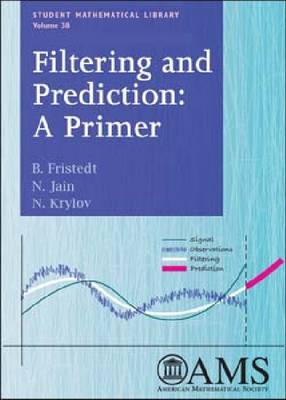Student Mathematical Library
1 total work
Filtering and prediction is about observing moving objects when the observations are corrupted by random errors. The main focus is then on filtering out the errors and extracting from the observations the most precise information about the object, which itself may or may not be moving in a somewhat random fashion. Next comes the prediction step where, using information about the past behavior of the object, one tries to predict its future path. The first three chapters of the book deal with discrete probability spaces, random variables, conditioning, Markov chains, and filtering of discrete Markov chains. The next three chapters deal with the more sophisticated notions of conditioning in nondiscrete situations, filtering of continuous-space Markov chains, and of Wiener process. Filtering and prediction of stationary sequences is discussed in the last two chapters. The authors believe that they have succeeded in presenting necessary ideas in an elementary manner without sacrificing the rigor too much. Such rigorous treatment is lacking at this level in the literature.In the past few years the material in the book was offered as a one-semester undergraduate/beginning graduate course at the University of Minnesota. Some of the many problems suggested in the text were used in homework assignments.
